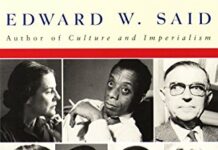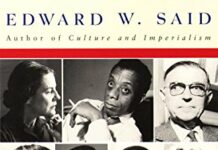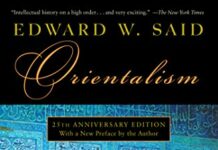
Ebook Info
- Published: 2000
- Number of pages: 472 pages
- Format: PDF
- File Size: 11.40 MB
- Authors: Edward W. Said
Description
Edward Said, the renowned literary and cultural critic and passionately engaged intellectual, is one of our era’s most formidable, provocative, and important thinkers. For more than three decades his books, which include Culture and Imperialism, Peace and Its Discontents, and the seminal study Orientalism, have influenced not only our worldview but the very terms of public discourse.The Edward Said Reader includes key sections from all of Said’s books, from the groundbreaking 1966 study of Joseph Conrad to his new memoir, Out of Place. Whether he is writing of Zionism or Palestinian self-determination, Jane Austen or Yeats, music or the media, Said’s uncompromising intelligence casts urgent light on every subject he undertakes. The Edward Said Reader will prove a joy to the general reader and an indispensable resource for scholars of politics, history, literature, and cultural studies: in short, of all those fields that his work has influenced and, in some cases, transformed.
User’s Reviews
Editorial Reviews: Review “One of the leading thinkers of the age.”–The New York Observer”Edward Said is the most distingished and cultural critic now writing in America.” –Cornel West”Said is a brilliant and unique amalgam of scholar, aesthete, and political activist…[He] challenges and stimulates our thinking in every area.” –Washington Post Book World”No one studying the relations between the metropolitan West and the decolonizing world can ignore Mr. Said’s work.” –The New York Times Book Review From the Inside Flap Edward Said, the renowned literary and cultural critic and passionately engaged intellectual, is one of our era’s most formidable, provocative, and important thinkers. For more than three decades his books, which include Culture and Imperialism, Peace and Its Discontents, and the seminal study Orientalism, have influenced not only our worldview but the very terms of public discourse. The Edward Said Reader includes key sections from all of Said’s books, from the groundbreaking 1966 study of Joseph Conrad to his new memoir, Out of Place. Whether he is writing of Zionism or Palestinian self-determination, Jane Austen or Yeats, music or the media, Said’s uncompromising intelligence casts urgent light on every subject he undertakes. The Edward Said Reader will prove a joy to the general reader and an indispensable resource for scholars of politics, history, literature, and cultural studies: in short, of all those fields that his work has influenced and, in some cases, transformed. From the Back Cover “One of the leading thinkers of the age.”–The New York Observer”Edward Said is the most distingished and cultural critic now writing in America.” –Cornel West”Said is a brilliant and unique amalgam of scholar, aesthete, and political activist…[He] challenges and stimulates our thinking in every area.” –Washington Post Book World”No one studying the relations between the metroploitan West and the decolonizing world can ignore Mr. Said’s work.” –The New York Times Book Review About the Author Edward W. Said was born in 1935 in Jerusalem, raised in Jerusalem and Cairo, and educated in the United States, where he attended Princeton (B.A. 1957) and Harvard (M.A. 1960; Ph.D. 1964). In 1963, he began teaching at Columbia University, where he was University Professor of English and Comparative Literature. He died in 2003 in New York City.He is the author of twenty-two books which have been translated into 35 languages, including Orientalism (1978); The Question of Palestine (1979); Covering Islam (1980); The World, the Text, and the Critic (1983); Culture and Imperialism (1993); Peace and Its Discontents: Essays on Palestine and the Middle East Peace Process (1996); and Out of Place: A Memoir (1999). Besides his academic work, he wrote a twice-monthly column for Al-Hayat and Al-Ahram; was a regular contributor to newspapers in Europe, Asia, and the Middle East; and was the music critic for The Nation. Read more
Reviews from Amazon users which were colected at the time this book was published on the website:
⭐. . . exposed himself–his Being–so that some truth would come through for public discussion. The reader familiar with Professor Said’s work doesn’t need an explanation, but if you are a reader who feels that he is polarizing, please read at least one essay in this book. Allow yourself, dear reader, to see that everything he wrote came out of integrity: He didn’t have a double standard for humanity.To hear about Edward Said from others, and then to read his essays, was really to know what he was about in the world. (In the interest of disclosure, I did not know Edward Said, or anyone in his family.) The book cover photograph alone tells a truth. It’s a photo which disturbs me and touches me so much that I can’t set the book face up on a table. (The photo I’m referring to is one in which Said looked directly at the camera, the book cover for the September 2000 edition of Vintage Book’s _The Edward Said Reader_ ). You can see in this photo the interior man made manifest. His sad brown eyes are hooded perhaps as he aged, but perhaps he was continually shocked that there were people who misunderstood him and could not read his soul. There are people–perhaps certain Israeli Jewish people or American Congressmen–who couldn’t understand that all Said wanted for Palestinians was what others have: a nation-state and structure, self-determination, and the ability to live on their own land. Reasonable desires–it seems.But Edward Said was–for me–a literary man, a reader of people and a writer who used language for truth and love. Just the essay alone on Jane Austen is a work of genius.
⭐The book is a unique view of a life of intellectual curiosity and commitment. The life of the mind is an important commitment for scholars and an essential part of a free society. Too many people do not think deeply about ideas or feelings. How we come to believe what we believe is too easily manipulated in modern society. Social media supplies all the “thought” that many people need. Professor Said is not looking to media for approval or agreement. He examines an idea frontward and backward and determines on his own whether it is worth believing.We need more “independent thinkers” toady more than ever.
⭐Challenging writing that makes you stop and think how very limited we are in our understanding and how necessary a voice like Said’s is for our age.
⭐frankly, i skimmed the literary analysis and musical writings and concentrated upon his palestine / israel political writings. his writing reveals his genius. he is among the first american academics to take a strong stand for the plight of the palestinian refugees. masterfully written, this is a keystone that ought to be read by everyone with an interest in this conflict. while i think that said attempts to present things in a “fair and balanced” manner, he does not explore all of the possibilities. the limitations in the scope of his writings are disappointing. A+. this is highly recommended.
⭐This brings a sample of Said’s most enduring and heartfelt essays, exploring everything from the tragedy of the Palestinian occupation to more theoretical discussions on comparative literature
⭐I like being entertained and educated by this brilliant man, taken from us all too soon. I’m too lazy to go into detail, sorry.
⭐Edward Said is a distinguish scholar whose work I have read few. This one is no exception and highly informative and educative. This should be a must read for anyone sincere about knowing the dynamics involved in the power play of the modern world we live.
⭐A great introduction to Said. Really shows his range, writing from literature to politics. After reading the book, I placed many books by Said on my “To Read” list, and cannot wait to read them all.
⭐Elegant, cultured, informed – the best of Said in one volume.
⭐This is one of the most influential book of the 2nd half of C20th. It is more relevant to day than on it’s publication.
⭐The best place to start reading Edward Said is “The Selected Works”. Such a prodigious body of work can be daunting and this book leaves the reader craving more and there is so much more to read. The next book to read by Said is “Orientalism”. From there, happy discoveries…
⭐Said’s works are enlighting. His pursuit of truth and justice is clearly manifested in his writings, especially his masterpiece; Orientalism. Said’s argument that humanism is all what is left to us, after democracy has miserably failed, is very sound. Also, his eloquence highly embellishes the writings, so the text and the context alike are superior.
Keywords
Free Download The Edward Said Reader in PDF format
The Edward Said Reader PDF Free Download
Download The Edward Said Reader 2000 PDF Free
The Edward Said Reader 2000 PDF Free Download
Download The Edward Said Reader PDF
Free Download Ebook The Edward Said Reader



